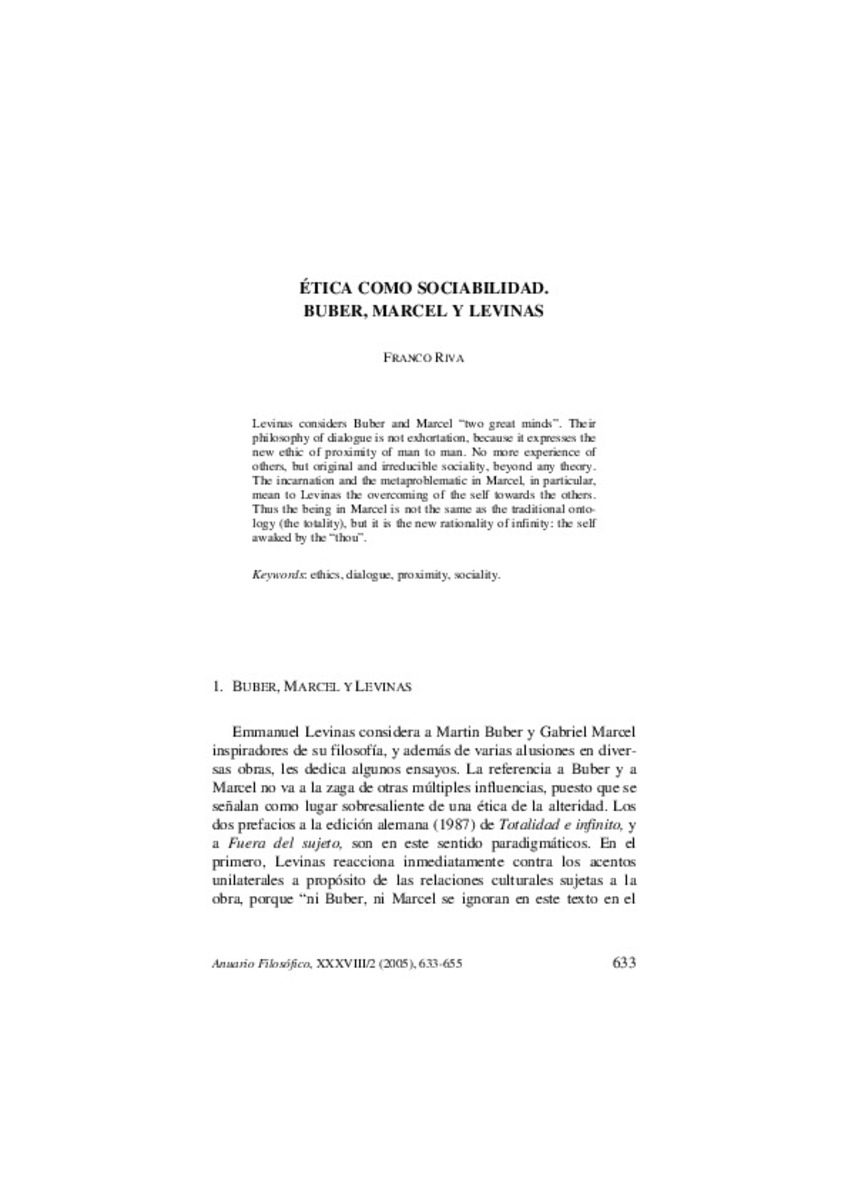Full metadata record
| DC Field | Value | Language |
|---|---|---|
| dc.creator | Riva, F. (Franco) | |
| dc.date.accessioned | 2009-11-25T11:03:08Z | - |
| dc.date.available | 2009-11-25T11:03:08Z | - |
| dc.date.issued | 2005 | - |
| dc.identifier.citation | Anuario Filosófico, 2005 (38), 633 - 655 | es_ES |
| dc.identifier.uri | https://hdl.handle.net/10171/5024 | - |
| dc.description.abstract | Levinas considers Buber and Marcel “two great minds”. Their philosophy of dialogue is not exhortation, because it expresses the new ethic of proximity of man to man. No more experience of others, but original and irreducible sociality, beyond any theory. The incarnation and the metaproblematic in Marcel, in particular, mean to Levinas the overcoming of the self towards the others. Thus the being in Marcel is not the same as the traditional ontology (the totality), but it is the new rationality of infinity: the self awaked by the “thou”. | es_ES |
| dc.language.iso | spa | es_ES |
| dc.rights | info:eu-repo/semantics/openAccess | es_ES |
| dc.subject | Marcel, Gabriel | es_ES |
| dc.subject | Ética | es_ES |
| dc.subject | diálogo | es_ES |
| dc.subject | proximidad | es_ES |
| dc.subject | Levinas, Emmanuel | es_ES |
| dc.title | Ética como sociabilidad. Bubber, Marcel y Levinas | es_ES |
| dc.type | info:eu-repo/semantics/article | es_ES |
| dc.identifier.doi | 10.15581/009.38.29338 | es_ES |
Files in This Item:
Statistics and impact
Items in Dadun are protected by copyright, with all rights reserved, unless otherwise indicated.






